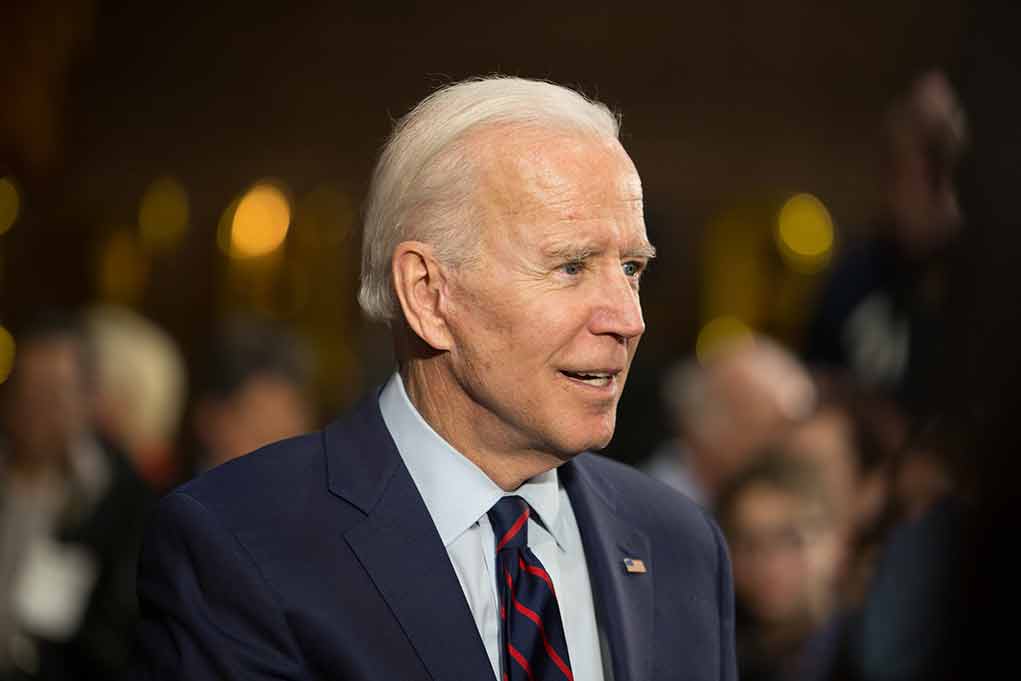
Trump’s bold reversal of Biden’s offshore drilling ban sparks fierce debate on energy independence versus environmental protection.
At a Glance
- Trump vows to overturn Biden’s offshore drilling ban on Day One of his presidency
- Biden’s ban covers most U.S. coastal waters, aiming to protect the environment
- Economic factors and global market trends pose challenges to Trump’s oil production goals
- Legal obstacles and congressional action may hinder Trump’s ability to reverse Biden’s policies
- Shift towards electric vehicles and fuel efficiency impacts long-term oil demand
Trump’s Day One Promise: Reversing Biden’s Offshore Drilling Ban
In a stark contrast to the current administration’s environmental policies, President-elect Donald Trump has announced his intention to immediately reverse President Joe Biden’s recent ban on offshore oil and gas drilling. This move underscores the ongoing battle between energy independence advocates and environmental conservationists, setting the stage for a significant policy shift come January 20th.
Trump’s stance is clear and uncompromising. When asked about Biden’s offshore drilling ban, Trump stated emphatically, “It’s ridiculous. I’ll unban it immediately. It’ll be changed on Day One.” This bold declaration signals Trump’s commitment to prioritizing domestic energy production over environmental concerns, a cornerstone of his previous administration’s energy policy.
President-elect Trump vows to overturn Biden's offshore drilling ban on "day one." The ban, protecting 625M acres, faces legal hurdles for reversal. Trump also targets wind energy, doubling down on fossil fuels.https://t.co/clbo1Jr887
— OilPrice.com (@OilandEnergy) January 7, 2025
Challenges to Trump’s Oil Production Goals
Despite Trump’s ambitious plans, several factors complicate his ability to significantly increase U.S. oil production. The United States already holds the title of the world’s largest oil producer and gas exporter, making substantial production increases a formidable challenge. Moreover, economic caution among petroleum producers, the rise of fuel-efficient vehicles, and potential trade wars pose significant obstacles to Trump’s energy goals.
“Oil producers in the U.S. — and in OPEC+ — have finally convinced investors they are not going to increase output if it erodes their profitability or fiscal positions.” – Bob Ryan
This cautious approach by oil companies, prioritizing profitability over increased production, may frustrate Trump’s efforts to boost domestic oil output significantly. Additionally, the global shift towards electric vehicles and improved fuel efficiency is reshaping the energy landscape, potentially limiting long-term demand for oil.
Trump to Reverse Biden’s ‘Ridiculous’ Offshore Drilling Banhttps://t.co/jrMyL6JdjS
— Steve Forbes (@SteveForbesCEO) January 7, 2025
The Electric Vehicle Revolution and Its Impact on Oil Demand
The rapid adoption of electric vehicles, particularly in China, is poised to have a significant impact on global oil demand. Industry experts predict that this shift could fundamentally alter the oil market’s growth trajectory.
“Wherever you are, Chinese EVs are coming your way.” – Malcolm Forbes-Cable
With China expected to capture a substantial market share for electric vehicles by 2034, and the International Energy Agency forecasting a leveling off of global oil demand by 2030, Trump’s push for increased oil production may be at odds with these emerging market trends. This disconnect between policy goals and market realities could pose significant challenges for the incoming administration’s energy strategy.
Legal and Congressional Hurdles
Trump’s plan to reverse Biden’s offshore drilling ban faces potential legal obstacles and may require congressional action. The intricacies of environmental regulations and the need for legislative support could slow down or complicate Trump’s efforts to implement his energy agenda swiftly.
Furthermore, Trump’s proposed trade policies, including potential tariffs on Canada and Mexico, could disrupt oil imports and potentially raise domestic fuel prices. These economic ripple effects could undermine the very energy independence Trump seeks to achieve.
The Balancing Act: Energy Independence vs. Environmental Protection
As Trump prepares to take office, the nation finds itself at a crossroads between pursuing aggressive energy independence and maintaining environmental protections. Biden’s ban on oil and gas lease sales in federal waters, while largely symbolic, represents a commitment to environmental conservation that resonates with many Americans concerned about climate change and ecological preservation.
“Trump can make the regulatory environment more accommodative to oil producers, but the market will let them know when higher output is needed.” – Bob Ryan, Ryan Commodity Insights
As the debate intensifies, it’s clear that the incoming Trump administration’s energy policies will have far-reaching implications for both the economy and the environment. The challenge lies in striking a balance that ensures energy security without compromising the nation’s natural resources and long-term environmental health.
Sources:
- Trump’s oil promises have bigger problems than Biden’s new offshore drilling ban
- Trump’s energy plans face hurdles beyond Biden’s offshore drilling ban – EHN
- Trump says he will revoke Biden offshore drilling ban immediately | Reuters
- Trump vows to undo Biden’s ban on offshore drilling

